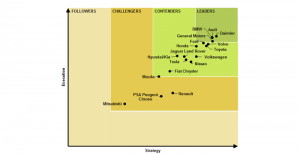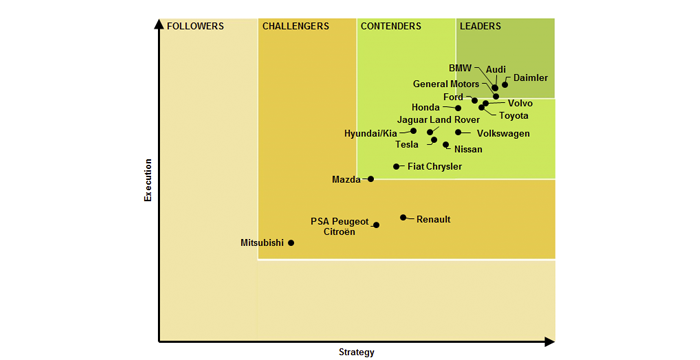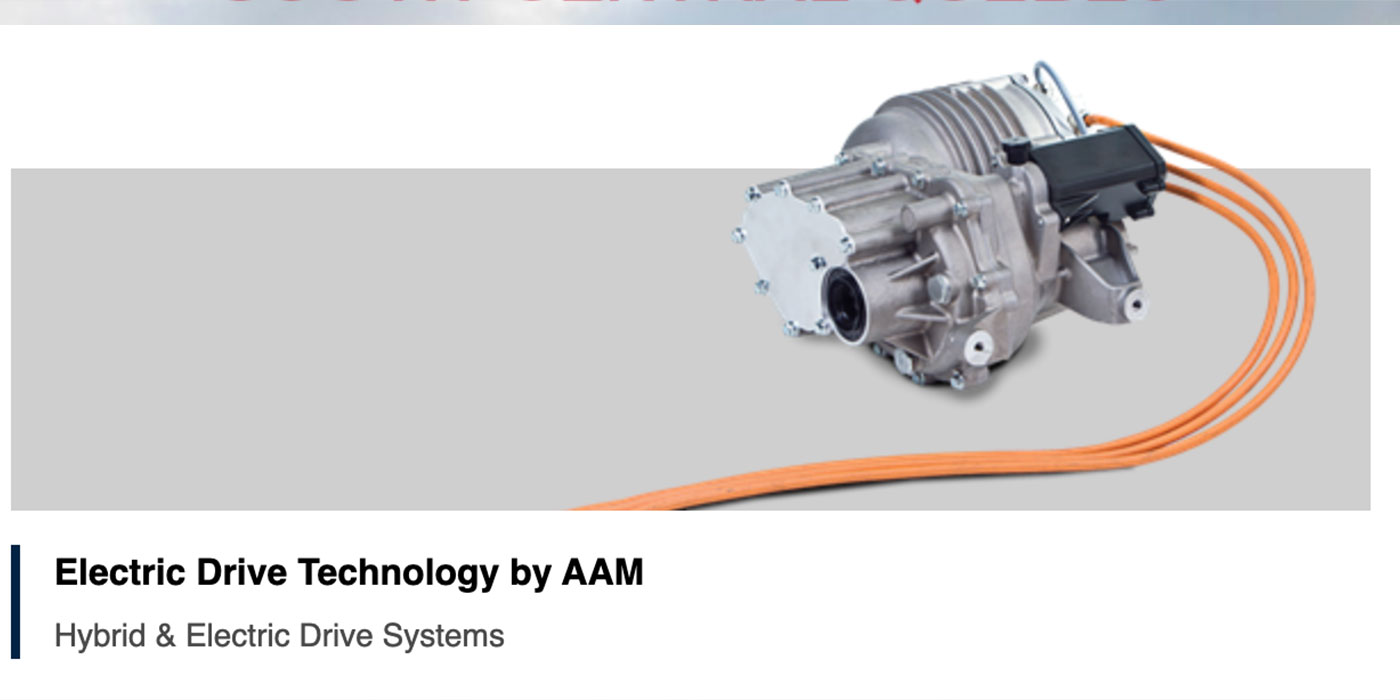A recent Leaderboard Report from Navigant Research examines the strategy and execution of 18 OEMs, including company profiles and rankings, to provide industry participants with an objective assessment of these companies’ relative strengths and weaknesses in the developing autonomous vehicle market.
 The report, “Navigant Research Leaderboard Report: Autonomous Vehicle OEMs,” examines the strategy and execution of 18 global vehicle manufacturers that are involved in the emerging autonomous vehicle market. These players are rated on 12 criteria: vision, go-to-market strategy, partnerships, production strategy, technology, geographic reach, sales, marketing and distribution, product capability, product quality and reliability, product portfolio, pricing and company commitment. Using Navigant Research’s proprietary Leaderboard methodology, vendors are profiled, rated and ranked with the goal of providing industry participants with an objective assessment of these OEMs’ relative strengths and weaknesses in the fast-developing market for ADAS and self-driving features.
The report, “Navigant Research Leaderboard Report: Autonomous Vehicle OEMs,” examines the strategy and execution of 18 global vehicle manufacturers that are involved in the emerging autonomous vehicle market. These players are rated on 12 criteria: vision, go-to-market strategy, partnerships, production strategy, technology, geographic reach, sales, marketing and distribution, product capability, product quality and reliability, product portfolio, pricing and company commitment. Using Navigant Research’s proprietary Leaderboard methodology, vendors are profiled, rated and ranked with the goal of providing industry participants with an objective assessment of these OEMs’ relative strengths and weaknesses in the fast-developing market for ADAS and self-driving features.
Over the past decade, advanced driver assistance systems (ADAS) have begun to proliferate from high-end luxury cars into affordable, high-volume models. Led by Daimler, Audi, BMW and General Motors, but with the competition not far behind, major OEMs and Tier 1 suppliers are actively developing Level 2, 3, and 4 automated driving technology.
“Autonomous driving has been a long-term goal for the automotive industry for decades,” said David Alexander, senior research analyst with Navigant Research. “While fully automated vehicles that operate themselves with no driver present are still a decade away from volume manufacturing, the incremental systems necessary as a foundation for the related technology are expected to make their way into production during the next five years or so.”
As more of the population migrates to larger cities, it is not practical for everyone to own a personal vehicle, new technologies such as automated driving and wireless connectivity are going to be important for travel in the smart cities of the future. According to the report, fleets of autonomous cars and trucks are one solution to maintaining personal mobility in cities as part of an integrated transport system.
An executive summary of the report is available for free download on the Navigant Research website.














